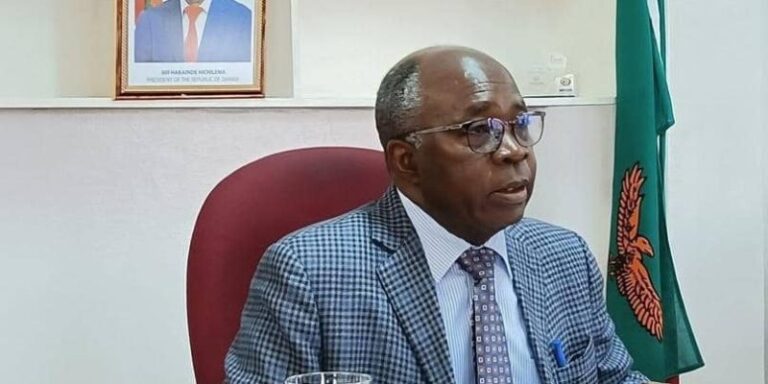Zambia’s businesses face toughest conditions in 22 months due to challenging economic conditions and continued money shortages, according to the latest Stanbic Bank Zambia Purchasing Managers Index (PMI).
The Stanbic Bank Zambia PMI fell to 48.3 in December of 2022 from 49.1 in the previous months, pointing to the third consecutive decline in the country’s private sector.
In a statement released on Wednesday, the report indicated that this was at the steepest pace since February of 2021.
“Challenging economic conditions have seen a continued decline in business conditions over the past month which is partly attributed to continued money shortages and a reduction in new orders,” Stanbic Bank Zambia Head of Global Markets Victor Chileshe said.
The report stated that the challenging economic conditions were reportedly a key factor leading new orders to fall in December.
It indicated that new business was down for the third consecutive month, with the reduction the sharpest in 22 months.
“Part of the difficulties facing firms was from money shortages in the economy. This, allied with a drop in new orders, resulted in a further decrease in business activity, and one that was the most pronounced since February 2021,” the report indicated.
Each of the five broad sectors covered by the survey signalled a reduction in activity.
It indicated that falling new business led to a fractional reduction in backlogs of work, following no change in the previous month.
“In turn, companies kept their staffing levels broadly stable. While some firms took on additional workers for specific projects, others reported that difficulties paying staff had led them to scale back workforce numbers,” the PMI indicated.
It indicated that the purchasing activity also fell, down for the third month running.
This trend was matched in terms of inventories, with companies reportedly reluctant to hold stock amid decreasing new business.
The PMI further stated that the reduction in stocks of purchases was the fastest in 23 months, with the overall input costs ticked down in December as a slight fall in purchase prices outweighed a fractional increase in staff costs.
In fact, the rise in staff costs was the slowest in the current nine-month sequence of inflation.
Meanwhile, suppliers’ delivery times were broadly unchanged.
PMI indicated that although on balance firms expect business activity to rise over the course of 2023 due to positive expectations for new business, widespread uncertainty meant that confidence was relatively muted in December.
The construction sector registered the highest optimism, followed by services. The lowest positive sentiment was seen among manufacturing companies.








